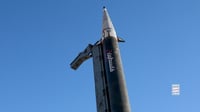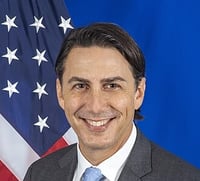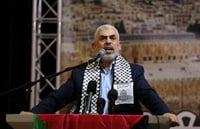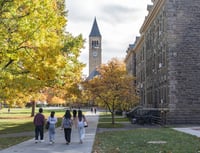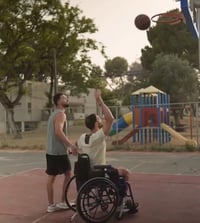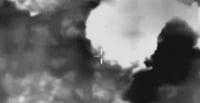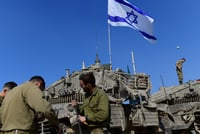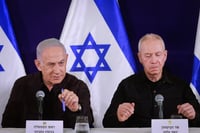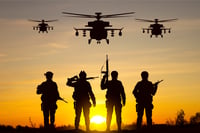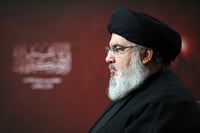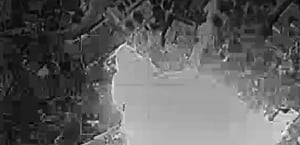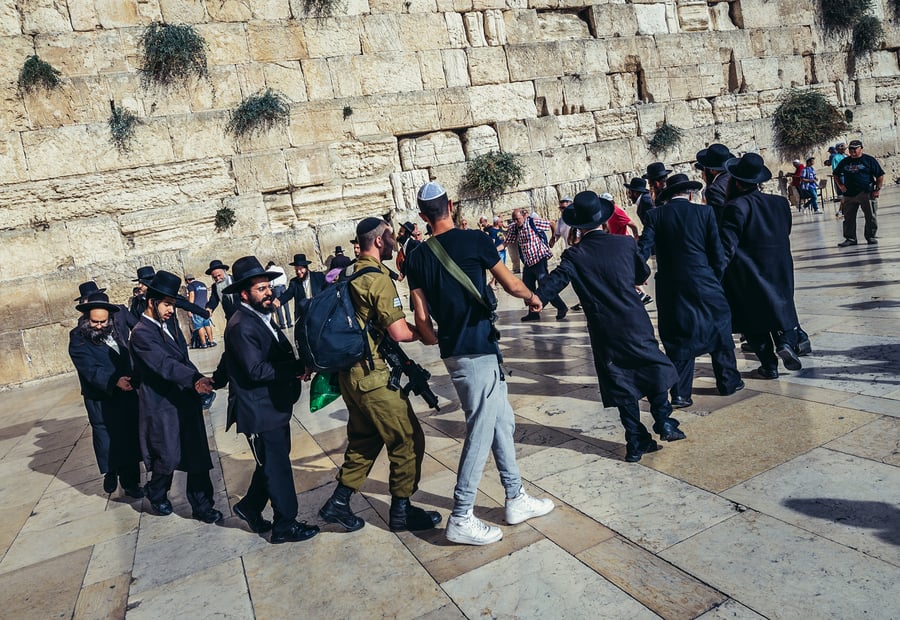
On a sweltering Monday morning in Jerusalem, two very different scenes unfold simultaneously. Outside a military recruitment office, dozens of ultra-Orthodox men in black hats and coats chant protests against what they see as an existential threat to their community. Just a few miles away, young men from the same community board buses, ready to begin their service in the IDF.
This juxtaposition epitomizes the complex and often contentious issue of Haredi (ultra-Orthodox) conscription in Israel, a debate that has intensified in recent years and now threatens to reshape both the military and one of Israel's most insular communities.
"Torah and Judaism in the Holy Land are on the brink of annihilation," one protester shouts, echoing a sentiment shared by many in the ultra-Orthodox world who view military service as incompatible with their religious lifestyle. Flyers distributed at the protest go further, claiming that "Jewish souls are being led to secular destruction, which is worse than death."
Yet for all the fervor of the protesters, a quiet revolution is taking place. Approximately 200 ultra-Orthodox recruits were expected to join the IDF that day, part of a growing trend that has seen more Haredim answering the call to national service.
Elia Aharon, a 20-year-old from Beit Shemesh, is one such recruit. Standing tall in his new uniform, Aharon represents a new generation of Haredim who see no contradiction between their faith and service to their country. "It was important for me to contribute to the country's security," he says, his eyes bright with determination. "I believe someone in a place where not everyone is ultra-Orthodox actually grows stronger."
The integration of Haredim into the IDF is not without its challenges. Many recruits, like Yitzhak from Beit Shemesh, must navigate a delicate balance between their military duties and community expectations. "There might be situations where I can't come home in uniform," he admits.
This push for integration comes at a critical time for Israel. With the ultra-Orthodox population growing rapidly—expected to make up 16% of Israel's population by 2030—their participation in national service and the workforce has become a pressing economic and social issue.
The IDF, recognizing both the need and the sensitivity of the situation, has created specialized units and roles for Haredi soldiers. Major (Res.) Moti Kaminstein, who manages a program to recruit ultra-Orthodox youth, sees these efforts as crucial. "The ultra-Orthodox public should look at these young men with admiration for choosing to contribute to the defense of the state," he says.
They have also adapted their approach following weeks of anti-enlistment protests within the Haredi community. An example of this is what happened today: In a last-minute change of strategy, the IDF redirected recruits to Ariel Sharon Park, where buses awaited to transport them to the Tel Hashomer induction center via a back entrance, avoiding protesters gathered at the main gate.
The move comes after several failed attempts to process Haredi recruits in recent weeks, as demonstrations against ultra-Orthodox participation in the military intensified.
Yet as more Haredim join the ranks, the backlash from within their community intensifies. The protests are not just about military service, but about preserving a way of life that has defined the ultra-Orthodox community for generations. For many, the fear is that exposure to secular society through the military will erode the foundations of their faith and culture.
As Israel continues to grapple with this issue, the scenes of protest and enlistment playing out across the country serve as a microcosm of a larger struggle—one that will shape the future of not just the ultra-Orthodox community, but of Israeli society as a whole.
In the end, the question remains: Can Israel find a way to respect the traditions of its ultra-Orthodox citizens while also integrating them into national service?
* Ynet contributed to this article.

